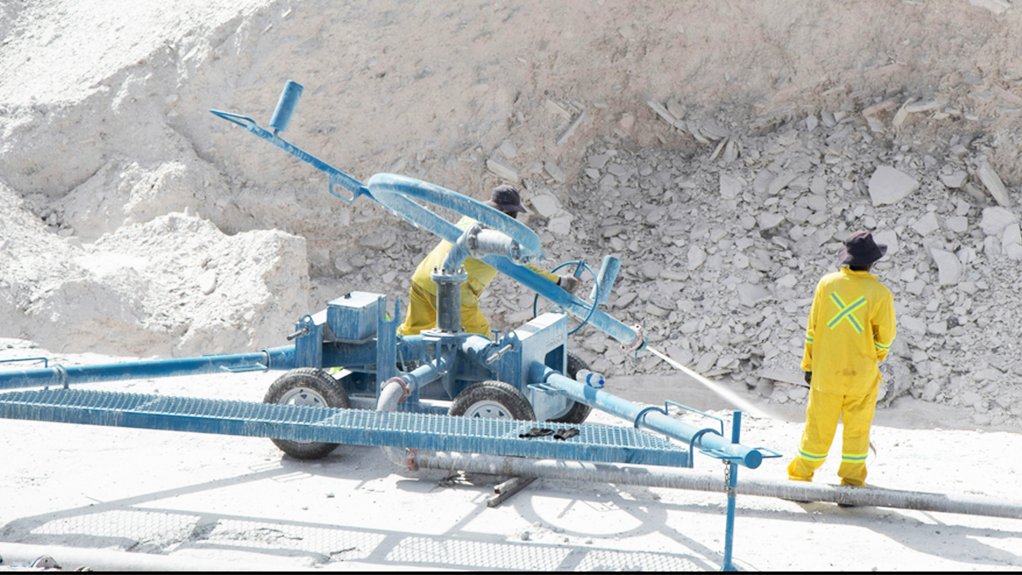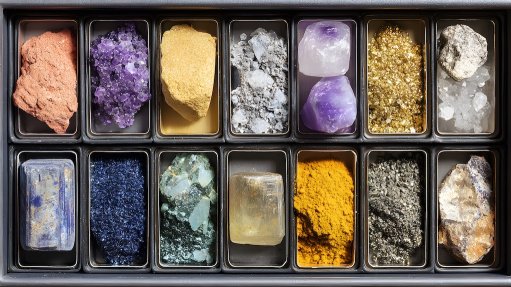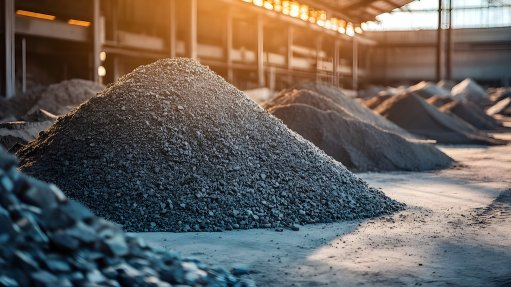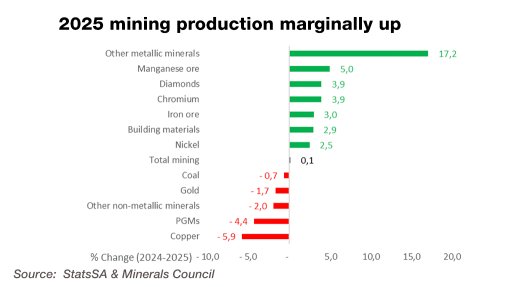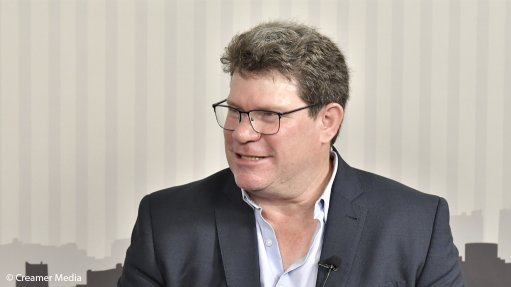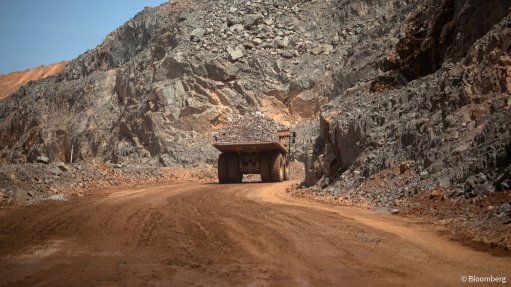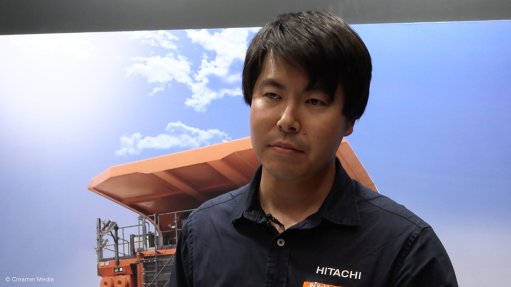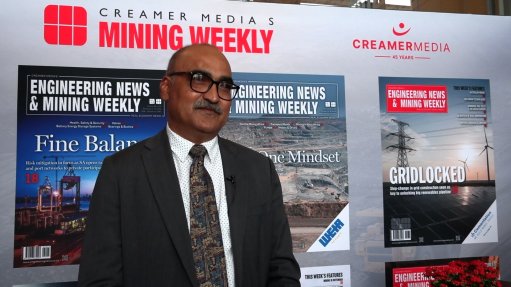Rare earth yttrium’s price surge uplifts South Africa’s Phalaborwa economics
JOHANNESBURG (miningweekly.com) – The economics of South Africa’s Phalaborwa rare earths project in Limpopo province have been uplifted very materially by the 3 000%-plus surge in the European prices of yttrium, a silvery white, moderately soft, ductile metal used in the aerospace, energy and semi-conductor industries, to name a few.
Yttrium, as reported by Mining Weekly earlier this month, is now included in the Phalaborwa resource and the project is expected to produce 213 t of yttrium oxide a year as part of the high-purity, mixed product range, which already has neodymium, praseodymium, dysprosium and terbium in its proposed samarium, europium, gadolinium (SEG+) product basket.
SEG+ serves as a foundational material for downstream separation and refinement into high-purity rare earth products used in magnets for wind turbines and electronics.It is a mix of all the economically important medium and heavy rare earths.
The Phalaborwa project, which is expected to produce 213 t yttrium oxide a year as part of the high-purity, mixed SEG+ product, is turning out to be very distinctive in that it hosts commercial quantities of the full gamut of economically important rare earths. Its medium and heavy rare earth elements (REEs) are enhancing the outlook for the earnings before income, taxation, depreciation and amortisation (Ebitda) of the London-listed Rainbow Rare Earths.
“This price increase positively impacts annual estimated Ebitda for Phalaborwa as there will be no extra cost to produce it as part of our proposed SEG+ product,” Rainbow Rare Earths CEO George Bennett commented.
Inclusion of yttrium in Phalaborwa’s SEG+ mixed rare earths product could add $30-million to the project’s annual estimated Ebitda at the lower range of the European price, based on a conservative SEG+ payability of 70%.
The price of yttrium oxide 99.999% cost, insurance, freight – CIF – Europe started the year, according to Argus Media data, at about $6/kg. It has since risen to between $220/kg and $320/kg, the large spread the result of differing pricing contracts.
Shortfalls have emphasised how extensively yttrium is used across civilian high-technology and defence applications.
Phalaborwa is a near-term and low-capital intensity source of all the economically and strategically important rare earths, with prices expected to stay elevated.
The project is one of the world’s most resilient rare earths projects at a time when these elements are in growing demand for use in permanent magnets to help the world go green.
Involved is the first commercial recovery of REEs from phosphogypsum, which makes project developer Rainbow Rare Earths something of a pioneer.
The large-scale pilot plant was built as part of Rainbow Rare Earths’ close collaboration since 2022 with South Africa’s State-owned Mintek research organisation. The pilot operated at the high level of 20 kg per hour of feed, making it six to ten times the size of a normal pilot plant.
The availability of phosphogypsum is the result of the mining of a hard-rock phosphate deposit, which has been carried out by Foskor for more than 60 years.
The mined material is concentrated through a flotation process into a phosphate slurry, which over the period has been the feed for a nearby phosphoric acid plant, where two key ingredients were added, namely sulphuric acid and heat to create phosphoric acid.
An agreement was signed with phosphate mining company Bosveld Phosphates in June 2023 to ensure 100% ownership of the Phalaborwa project.
An interim economic study released in December 2024 proposed a project life of 16 years – two years longer than the one envisaged in the October 2022 preliminary economic assessment (PEA) – processing an average of 2.2-million tonnes of phosphogypsum a year.
The overall recovery rate of magnet REEs remains the same as that of the PEA, at 65%, based on the pilot campaign undertaken from 2023 to 2024, with about 1 900 t/y magnet rare earth oxide (REO) production.
The interim economic study represents a much higher level of confidence in the processing flowsheet prior to separation, and capital and operating cost estimates, than those of the PEA.
In addition to confirming the robust economics of Phalaborwa, the interim economic study has highlighted several areas for further operating and capital cost optimisation, which will be done in parallel with the ongoing rare earths separation testwork.
The interim economic study provides an updated, upfront capital cost of $326.1-million, which is lower than the PEA capital cost of $295.5-million, adjusted for inflation.
Production is expected to start in 2026. Key contributors include Ansto Minerals for plant processing testwork; K-Tech for REO separation technology and partner in developing plant processing flowsheet, managing the back-end of the pilot plant at its US facility; Mintek for managing plant front-end in South Africa; and METC Engineering for the production of the PEA and engineering work for the definitive feasibility study.
Article Enquiry
Email Article
Save Article
Feedback
To advertise email advertising@creamermedia.co.za or click here
Announcements
What's On
Subscribe to improve your user experience...
Option 1 (equivalent of R125 a month):
Receive a weekly copy of Creamer Media's Engineering News & Mining Weekly magazine
(print copy for those in South Africa and e-magazine for those outside of South Africa)
Receive daily email newsletters
Access to full search results
Access archive of magazine back copies
Access to Projects in Progress
Access to ONE Research Report of your choice in PDF format
Option 2 (equivalent of R375 a month):
All benefits from Option 1
PLUS
Access to Creamer Media's Research Channel Africa for ALL Research Reports, in PDF format, on various industrial and mining sectors
including Electricity; Water; Energy Transition; Hydrogen; Roads, Rail and Ports; Coal; Gold; Platinum; Battery Metals; etc.
Already a subscriber?
Forgotten your password?
Receive weekly copy of Creamer Media's Engineering News & Mining Weekly magazine (print copy for those in South Africa and e-magazine for those outside of South Africa)
➕
Recieve daily email newsletters
➕
Access to full search results
➕
Access archive of magazine back copies
➕
Access to Projects in Progress
➕
Access to ONE Research Report of your choice in PDF format
RESEARCH CHANNEL AFRICA
R4500 (equivalent of R375 a month)
SUBSCRIBEAll benefits from Option 1
➕
Access to Creamer Media's Research Channel Africa for ALL Research Reports on various industrial and mining sectors, in PDF format, including on:
Electricity
➕
Water
➕
Energy Transition
➕
Hydrogen
➕
Roads, Rail and Ports
➕
Coal
➕
Gold
➕
Platinum
➕
Battery Metals
➕
etc.
Receive all benefits from Option 1 or Option 2 delivered to numerous people at your company
➕
Multiple User names and Passwords for simultaneous log-ins
➕
Intranet integration access to all in your organisation



